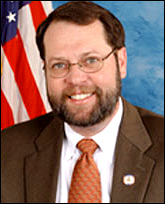
Dewhurst | Cruz
Voters go to the polls in Texas tomorrow to choose US Senate as well as several congressional nominees. The big Senate battle is on the Republican side, where three-term Lt. Gov. David Dewhurst fights to save his political credibility against former state solicitor general Ted Cruz. In the May 29 primary, Dewhurst placed first with 44.7 percent of the vote versus Cruz’s 34.1 percent.
The primary results place Dewhurst in a gray area as to whether he can develop a winning run-off coalition in a two-way race. Most often, a well-known candidate who fails to secure a majority of his own party’s vote in the primary election loses the subsequent run-off because the majority opposition only has one choice. Turnout and the candidate who has the most energized base tend to be the determining factors.
Internal polls released from both camps show their own candidate leading in the high single-digit range. The Cruz polling was conducted just among May 29 primary voters while the Dewhurst samples are from a likely voter model. The methodology difference lends more credence to the Cruz polls. The chances of seeing an upset win here are at least 50/50.
On the Democrat side, former state Rep. Paul Sadler and retired educator Grady Yarbrough battle for a ticket to the general election. Realistically, the winner of the Dewhurst-Cruz contest easily defeats the Dem winner in November, so tomorrow’s GOP run-off is likely race-determining.
On the congressional level, run-off voters in several districts will effectively choose House members. In the Dallas-Ft. Worth area, the 33rd Congressional District is one of four new seats awarded the state. A Democratic battle between Ft. Worth state Rep. Marc Veasey and former state representative and Dallas City Councilman Domingo Garcia is peaking. The race has become a rivalry contest between the two Metroplex cities. With more of the Ft. Worth area included in the new 33rd and placing first with a 37-25 percent margin, Veasey is viewed to be the favorite tomorrow. The Democrat winner claims the seat in November.
In the Rio Grande Valley, the new 34th Congressional District is anchored in the city of Brownsville and travels along the Gulf of Mexico coastline. Filemon Vela will likely win the Democratic nomination tomorrow against former congressional aide Denise Saenz Blanchard. Vela, an attorney, is the son of ex-federal judge Filemon B. Vela and former Brownsville mayor Blanca Sanchez Vela. His wife, a Republican, is a sitting district judge. Vela placed first in May with 40 percent of the vote against only 13 percent for Blanchard. The large spread suggests Vela is in strong run-off and general election position.
For the Republicans, in the district stretching from the southern tip of Tarrant County (Ft. Worth) into western Travis County (Austin), former Secretary of State Roger Williams, assuming that financial wherewithal is a determining factor, is poised to score a run-off victory against Tea Party activist and college professor Wes Riddle. Williams is projected to outspend Riddle by an 8:1 margin, but the latter should have a grassroots advantage. In a low turnout election, that could be significant but it is unlikely he can overcome Williams’ many advantages.
In the state’s fourth new district, the 36th CD to the north and east of Houston, first-place finisher Mark Takach, a financial advisor who placed just 350 votes ahead of former Rep. Steve Stockman in the primary, face each other tomorrow. The outcome here is difficult to predict. Takach is an unknown and Stockman served only one term back in 1995-97 in an adjoining area. The winner, however, becomes the prohibitive favorite for November.
In the open 14th District, the seat veteran congressman and presidential candidate Ron Paul is vacating, two strong Republicans, state Rep. Randy Weber and Pearland City Councilwoman Felicia Harris, are fighting for the right to face ex-Rep. Nick Lampson (D) in the general election. The district clearly favors Republicans, but Lampson represented the Beaumont-Galveston region for four terms until his defeat in the redistricted 2nd CD that took him out of his regional base.
From the expansive district that stretches from San Antonio all the way to El Paso, another defeated congressman, Ciro Rodriguez, is attempting yet another comeback. He placed first in the May 29 Democrat primary and now faces state Rep. Pete Gallego in tomorrow’s run-off. The Democrat establishment is clearly behind Gallego, who most believe will be the stronger opponent to freshman Republican Rep. Quico Canseco, but the San Antonio base still appears to be a Rodriguez asset. The general election will be a toss-up in what is Texas’ only real marginal congressional district.






